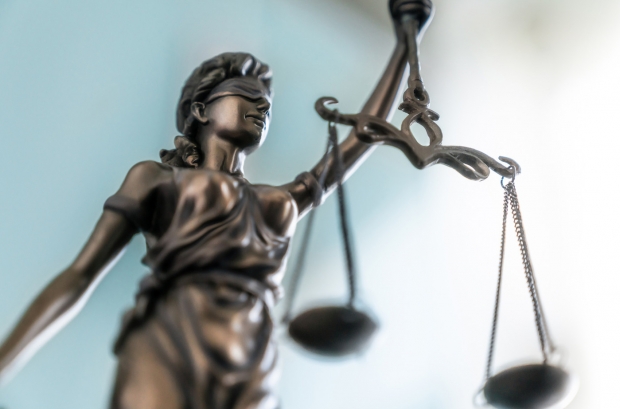 English
English Français
Français
Read in the news
|
Published on 17 December 2020
France - Charlie Hebdo: Fourteen guilty in 2015 Paris terror attacks trial

Published on December 17, 2020, in BBC News
The January 2015 attacks on Charlie Hebdo magazine, a policewoman and a Jewish supermarket left 17 people dead.
Eleven defendants appeared in court for the verdict on Wednesday, and three were tried in absentia.
One of those not in court was Hayat Boumeddiene, the fugitive partner of Amedy Coulibaly who was killed in the attack on the supermarket.
Boumeddiene, who fled to Syria a week before the attacks, was found guilty of financing terrorism and belonging to a criminal terrorist network. She was handed a 30-year jail sentence.
The main defendant in court, Ali Riza Polat, was found guilty of complicity in terrorist crime and also given a 30-year jail term.
All 14 accomplices were found guilty on various charges, ranging from belonging to a criminal network to direct complicity in the January 2015 attacks. Terrorism charges were dropped for six of the 11 defendants in court who were found guilty of lesser crimes.
The three men who carried out the 7-9 January 2015 attacks were killed and the accomplices, who first went on trial in early September, were accused of obtaining weapons or providing logistical support. They all denied the charges.
The trial, which was delayed repeatedly due to the Covid-19 pandemic, came during a period when France once again faced a series of militant Islamist attacks and renewed debate over cartoons depicting the Prophet Muhammad.
Who are the accomplices?
Polat, described as Coulibaly's right-hand man, had a pivotal role in preparing the attacks and a "precise knowledge of the terrorist plan", prosecutors said. The 35-year-old admitted taking part in "scams" but denied any knowledge of the plot.
It is unknown whether the three who were tried in absentia are even alive. Boumeddiene was thought to have died in a US air strike, but a female jihadist told French security services she had escaped from a camp for militant detainees late last year.
Boumeddiene took part in preparing the attacks and used a variety of methods to buy the weapons, prosecutors said.
Mohamed Belhoucine, a close friend of Coulibaly, was also tried in absentia and given life in jail. He was accused of giving the killer the most significant operational support as well as acting as his religious mentor. His younger brother, Mehdi, also stood trial in absentia for helping Hayat Boumeddiene escape but was not sentenced after the court ruled he had already been judged in an earlier trial. The two brothers are believed to be dead.
Several others, including Amar Ramdani and Nezar Mickaël Pastor Alwatik, were found guilty of belonging to a criminal terrorist network. Alwatik was with Coulibaly in jail and his DNA was found on two pistols at his home, while Ramdani was accused of providing weapons.
Both men, along with Saïd Makhlouf, were described as being part of a support group based in Lille in northern France.
Four others, based in the Ardennes area of Belgium, were found guilty of being part of a criminal network and given sentences of between five and 10 years.
Many questions left unanswered
These proceedings have been filmed for posterity, and the stories told by survivors and the bereaved will shape France's memory of these terrible events. But in other ways the country's biggest ever terrorist trial has failed to live up to its billing.
Weeks of exhaustive examination of evidence has left too many questions unanswered. All those charged were allegedly involved in networks that led up to Amedy Coulibaly, the supermarket attacker. But what of the brothers Saïd and Chérif Kouachi - the Charlie Hebdo gunmen? How did they get their weapons?
What was the role of far-right militant Claude Hermant, who has been tried separately on non-terrorist charges? Or the three absentees who fled to Syria just before the attacks?
And who from al-Qaeda and the Islamic State group actually ordered the attacks, if anyone?
Those on trial came across as petty criminals. They either knew nothing or were well practised in the art of obfuscation. All said they were completely unaware of Coulibaly's jihadist intentions, and the prosecution found it hard to prove otherwise.
Cathartic the trial may have been - especially for those who still suffer from the memory of these events - the fact remains that not much light has been shed.

What happened in January 2015?
On 7 January 2015, the two Kouachi brothers stormed the Paris offices of Charlie Hebdo in the Rue Nicolas-Appert before opening fire on its staff and murdering 11 people including five of the satirical magazine's cartoonists.
A police officer was murdered outside the building. The Kouachis were killed in a shootout with police two days later.
On 8 January Coulibaly shot dead a woman police officer in the Paris suburb of Montrouge.
The next day he took hostages in Hyper Cacher, a kosher supermarket, killing an employee and three customers. Coulibaly was eventually shot dead in a police raid.
Charlie Hebdo marked the start of the trial in September 2020 by reprinting controversial cartoons of the Prophet Muhammad that sparked protests in several Muslim countries.
The following month, teacher Samuel Paty was murdered near his school by a Chechen, days after the teacher showed some of the cartoons to a class on free speech.
Source :
BBC
